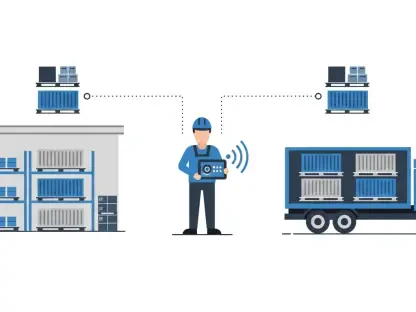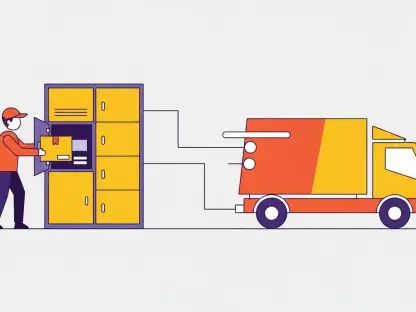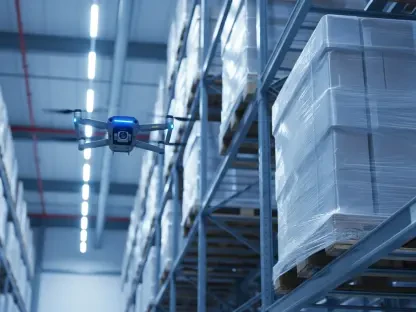In the fast-changing automotive industry, Stellantis’ recent procurement policy shift has generated significant buzz. The company’s decision to step away from its stringent “no more claims” policy marks a notable turn, particularly for suppliers facing economic pressures and market volatility. But is this new policy a true game changer for suppliers?
Stellantis’ Policy Reversal
The Hardline Approach of 2022
A year ago, Stellantis implemented a strict “no more claims” policy, declining all requests from suppliers for pricing adjustments, aiming to stabilize costs and maintain control over supply chain expenditures. This rigid stance created a strained relationship between the manufacturer and suppliers, who were already grappling with increased economic pressures. The policy was designed to manage a turbulent economic landscape, with Stellantis asserting greater control over its supply chain and expenses. However, the hardline approach received criticism for its inflexibility and lack of consideration for the financial challenges many suppliers faced, further exacerbating the strained dynamics within the supply chain.
The pressure from raw material price increases, inflation, and supply chain disruptions made the economic environment particularly tough for suppliers, who found themselves squeezed financially. By enforcing a blanket policy that denied any adjustments, Stellantis inadvertently impacted the operational stability of its suppliers. The policy left many suppliers in a difficult position, with little to no room to negotiate pricing changes that reflected the heightened costs of production. This led to friction and discontent among suppliers, hindering the overall harmony and effectiveness of the supply chain network on which automakers heavily rely.
The New Collaborative Stance
In a marked departure, Stellantis’ North American purchasing chief announced a reversal of this hardline policy at a recent industry town hall, stating that the company would now entertain and consider supplier requests for price relief. This pivot reflects a more understanding and collaborative approach to supplier management, acknowledging the challenges suppliers face and the necessity of supporting them through economic turbulence. The new stance signifies a willingness to engage in dialogue with suppliers, aiming to establish a more cooperative and empathetic supply chain management strategy.
This change in approach not only underscores Stellantis’ recognition of the interconnected nature of the automotive supply chain but also its commitment to fostering a stable and resilient industry. By opening up channels for pricing relief requests, Stellantis is making a strategic move to better adapt to market conditions and economic realities. It sends a clear message to suppliers that the company values their contributions and is willing to work together to navigate financial challenges. This collaborative posture is expected to improve supplier relationships, laying the foundation for a more stable and efficient supply chain, which is particularly crucial as the industry faces ongoing transformations, such as the shift towards electric vehicles and other innovations.
Implications for Suppliers
Economic Pressures on Suppliers
Suppliers have been hit hard by rising raw material costs, inflation, and ongoing supply chain disruptions. The previous “no more claims” policy exacerbated these challenges, leaving many suppliers in a precarious financial position where operating costs soared but opportunities for price adjustments were completely blocked. Stellantis’ new policy change acknowledges and addresses these economic realities, providing a necessary relief valve for suppliers struggling under increasing financial pressure. This shift is expected to alleviate some of the economic strain on suppliers, potentially leading to more sustainable operations and improved financial health.
By reconsidering supplier requests for pricing relief, Stellantis is enabling suppliers to adjust prices in response to escalating costs, thereby promoting a fairer and more balanced economic relationship. This adjustment is crucial in a market where cost dynamics are constantly shifting, influenced by factors such as global supply chain disruptions, raw material shortages, and inflationary pressures. Suppliers now have the opportunity to present their cases for price adjustments, which could lead to more equitable and realistic pricing structures that reflect the true cost of production. This policy change not only provides immediate financial relief but also fosters a more supportive and transparent business environment, which is essential for long-term sustainability and growth.
Building Stronger Supplier Relations
By opening up to pricing relief requests, Stellantis aims to foster a more cooperative relationship with its supply base, signaling an understanding of the interconnected nature of the automotive supply chain and the importance of supplier stability for overall industry resilience. This move is a strategic effort to build stronger, more supportive supplier relations, which is essential for ensuring a dependable and efficient supply chain. A collaborative approach where both suppliers and manufacturers work together can lead to improved communication, trust, and mutual support, driving the overall success of the supply chain network.
The shift towards a more cooperative stance indicates Stellantis’ recognition of the critical role that suppliers play in the automotive production process. By considering their economic challenges and working towards mutually beneficial solutions, Stellantis can enhance its relationship with suppliers, ensuring smoother operations and fewer disruptions. This policy change promotes a partnership-based approach, where both parties can openly discuss and address issues, leading to a more resilient and adaptable supply chain. Overall, this more flexible and empathetic approach to supplier management is expected to strengthen Stellantis’ position within the industry, fostering a more harmonious and productive working relationship with its suppliers.
Broader Industry Impact
Setting a New Standard
Stellantis’ policy shift could potentially influence other automakers, setting a new standard for supplier relations within the industry. As major players observe Stellantis’ approach, a trend towards more flexible and supplier-friendly procurement policies may emerge, enhancing supplier-manufacturer relations across the board. This potential industry-wide shift could result in a more collaborative environment where suppliers’ financial challenges and economic realities are acknowledged and addressed, promoting overall stability and resilience in the automotive supply chain.
The influence of Stellantis’ new policy is likely to resonate across the industry, encouraging other automakers to reevaluate their own procurement strategies. The move towards more supplier-friendly policies can lead to improved trust and cooperation between manufacturers and suppliers, ultimately strengthening the supply chain. This trend could also spark innovation and efficiency improvements, as suppliers feel more supported and motivated to invest in new technologies and processes. As other automakers adopt similar approaches, the industry as a whole may benefit from a more robust, adaptable, and resilient supply chain network capable of weathering economic fluctuations and market challenges.
Preparing for Electrification
The automotive industry is rapidly transitioning towards electrification, demanding robust and adaptable supply chains. Stellantis’ new policy aligns with this shift, recognizing the need for strong supplier partnerships to support the development and production of electric vehicles (EVs). As the industry moves towards electrification, the demand for new technologies and raw materials increases, requiring a more collaborative and resilient supply chain to manage these changes effectively. Stellantis’ more flexible and supportive procurement policy is designed to ensure that suppliers are well-positioned to contribute to the EV transition.
By fostering stronger supplier relationships and providing pricing relief, Stellantis is creating an environment where suppliers can better manage the costs and challenges associated with the production of EV components. This supportive approach is essential for ensuring a steady and reliable supply of critical materials and technologies required for EV development. As the industry continues to evolve, the ability to adapt and collaborate with suppliers will be a key factor in achieving success in the electrification journey. Stellantis’ policy shift is a significant step towards building a more resilient and future-ready supply chain, capable of meeting the demands of the rapidly growing EV market.
The Path Forward
Adaptation to Market Conditions
Flexibility in procurement policies is becoming essential as the automotive industry navigates a post-pandemic landscape. Stellantis’ new approach reflects a broader trend where automakers are adjusting to varying market conditions to ensure supply chain viability and economic collaboration. As the industry continues to face uncertainties and economic fluctuations, the ability to adapt and respond to market changes is crucial for maintaining operational stability and competitiveness. Stellantis’ flexible procurement policy is a strategic move designed to enhance its adaptability and resilience in an ever-changing market.
The shift towards more flexible procurement policies allows automakers to better manage the challenges and opportunities that arise in a dynamic economic environment. By working collaboratively with suppliers and addressing their financial concerns, Stellantis is positioning itself to navigate future market fluctuations more effectively. This approach not only supports the immediate needs of suppliers but also promotes long-term sustainability and growth. As the automotive industry continues to evolve, the adoption of flexible and responsive procurement strategies will be key to ensuring the resilience and success of supply chain networks.
Emphasis on Sustainability
The rapidly evolving automotive industry has seen Stellantis make waves with its latest shift in procurement policy. The company’s decision to move away from its stringent “no more claims” policy represents a significant change, particularly affecting suppliers who have been struggling with economic pressures and market instability. This move might be perceived as a breath of fresh air for suppliers who have faced difficulty in negotiating terms under strict policies.
For years, Stellantis adhered strictly to the “no more claims” rule, which meant suppliers had little room to negotiate or adjust terms once contracts were signed. This rigid approach added to the challenges many suppliers faced, especially in a market characterized by unpredictable fluctuations and financial pressures. By loosening these constraints, Stellantis seems poised to offer suppliers a bit more flexibility and relief.
However, the question remains: Will this new policy truly transform the supplier experience? It represents a step towards a more collaborative and responsive business model, which could potentially lead to stronger partnerships and improved outcomes for all parties involved. The change could help suppliers better manage costs and adapt to market changes more efficiently.
Ultimately, while Stellantis’ policy shift marks a new chapter in supplier relationships, it remains to be seen how profoundly it will impact the industry. Only time will tell if this policy adjustment will indeed be a game changer, fostering a more resilient and cooperative automotive supply chain.









